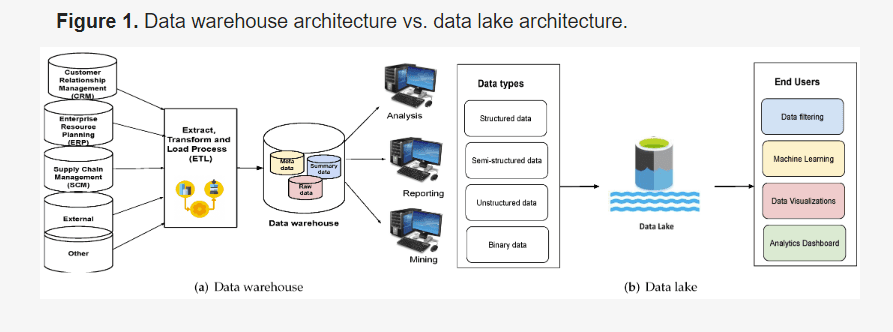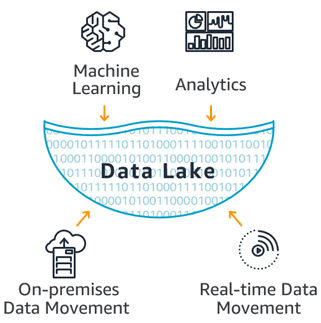Business Intelligence
Written By: Sajagan Thirugnanam and Austin Levine
Last Updated on October 6, 2024
In the ever-expanding realm of data management and analytics, a powerful concept has emerged, captivating the attention of businesses and organizations worldwide: the data lake. Like a vast reservoir, data lakes are repositories capable of storing massive amounts of raw, unprocessed data from diverse sources. These reservoirs hold the potential to transform how we handle and derive insights from data, offering unparalleled flexibility and scalability. In this article, we delve into the depths of data lakes, exploring their revolutionary impact on data management, analytics, and decision-making processes.
Transforming Data Management and Driving Data-Driven Decision-Making with Data Lakes
Exploring their revolutionary impact on data management, data lakes have emerged as a game-changer in the field of data analytics. Unlike traditional data storage systems, data lakes provide a flexible and scalable solution for storing and managing vast volumes of diverse data types, including structured, semi-structured, and unstructured data. By centralizing data in a raw format, data lakes eliminate the need for upfront data modeling, allowing organizations to capture and store data from multiple sources without worrying about immediate data structure requirements. This unprecedented level of flexibility empowers businesses to easily incorporate new data sources and adapt their data management strategies in real-time, fostering agility and innovation.

Source : mdpi.com
Revolutionizing Analytics: The Paradigm Shift Enabled by Data Lakes
Data lakes are driving a paradigm shift in analytics, enabling organizations to unlock the true value of their data assets. By consolidating data from various sources into a single reservoir, data lakes provide analysts, data scientists, and business users with a holistic view of the data landscape. This comprehensive view allows for seamless data exploration and discovery, as well as the identification of valuable patterns, correlations, and trends that can fuel data-driven decision-making. With data lakes, organizations can leverage advanced analytics techniques such as machine learning and predictive modeling, extracting actionable insights that drive innovation, optimize processes, and enhance customer experiences. In the digital era, data lakes are becoming the backbone of analytical capabilities, transforming businesses into data-driven powerhouses.

Source : Wordpress
In conclusion, data lakes have emerged as a game-changer in the field of data management and analytics, revolutionizing the way organizations handle and derive insights from their data assets. With their flexible and scalable nature, data lakes provide a powerful solution for storing and managing vast volumes of diverse data types. By centralizing data in its raw form, data lakes eliminate the need for upfront data modeling and allow for seamless incorporation of new data sources, fostering agility and innovation. Furthermore, data lakes enable comprehensive data exploration. The impact of data lakes on data management is profound, as they break down silos, facilitate collaboration, and serve as a foundation for advanced analytics and machine learning applications. As businesses continue to navigate the digital era, data lakes will remain a crucial tool for leveraging the full potential of data assets and driving data-driven decision-making to new heights.

Related to Business Intelligence